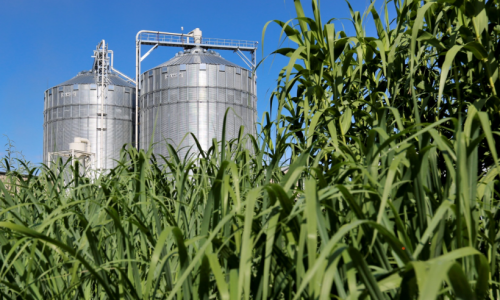PT Kencana Energi Lestari Tbk, the only private energy company in renewable energy (EBT) sector, has aimed to assist the Indonesian government in its mission to achieve net zero emissions by 2060. The company develops a number of renewable energy sources, including hydropower, solar PV (photovoltaic) and biomass.
Kencana Energi Director, Karel Sampe Pajung, said the company was focusing on various EBT power plant developments, such as hydro power plant using the run of the river method, solar PV, and biomass using any kind of fuel such as palm shells, wood and others.
The company has 6 power plant units of which 4 are already operating and 2 are under construction with a total of 65MW (MegaWatts). The production capacity has seen a rising trend from 103.9GWh (GigaWatthours) in 2018, 204.9GWh in 2019, 252.7GWh in 2021 and 257.4GWh in the first semester of 2022.
“We have several future development plans. One of the under construction [plants] is [located in] Ordi Hulu (North Sumatra) that will operate in 2024. It is based on the PPA (Power Purchase Agreement) with the PLN (state electricity company). 100% of electricity from Kencana will be supplied to PLN and [the production capacity] follows the growth of electricity [demand] from PLN,” said Pajung.
The plan to expand the construction of the 10MW Ordi Hulu minihydro plants (PLTM) and the 1.3MW solar power grid (PLTS) in Bangka, in Bangka Belitung province, will kick off next year.
“In the near future, we also plan to expand the 35MW Pakkat-2 hydropower plant (in North Sumatra), followed by the 90MW Salu Uro hydropower plant and the 75MW Kalaena hydropower plant, both in South Sulawesi,” Pajung added.
Rusmin Cahyadi, also a director at Kencana Energi, explained that the company has allocated US$30 million for Capex in 2022 for several projects.
The first project is Ordi Hulu PLTM which receives US$28 million and will be used in the 2022-2023 period. The construction started in April 2022 and is expected to be completed in early 2023. So far, the use of funds is US$2.5 million.
The second is the 1.3MW Bangka PLTS which receives approximately US$1.3 million. The funds will be used within this year, with 8 months for construction period, and US$500,000 for the development of new projects. The completion is estimated this year.
Cahyadi explained that the company’s agenda was constructing new EBT projects with a total of 200MW. It will require a Capex of US$500 million next year. The investment sources are both internal and external at US$125 million while the remaining US$375 million will be from debt project financing.
“Cooperation with contractors is still open and some contractors are selected with experience, but it is possible to collaborate with other contractors,” said Pajung.
Cahyadi added: “Tepco (Tokyo Electric Power Company), which is the largest company in Japan, is strong both financially and technology wise. It has 25% of shares in our company. We no longer accept investment because Tepco has met very solid criteria. But for other fields such as EPC (engineering, procurement and construction), and general supply for turbines, there is still a chance for selection in the future.”
In 2022, the company’s revenue is US$41.4 million, with a net income of US$14 million, accompanied by US$324.8 million in assets. It has projected increasing revenue of US$41.4 million this year, followed by US$145.8 million in 2023, US$266.9 million in 2024 and US$412.9 million in 2025.
As for the projected net income is US$14 million in 2022, US$62.6 million in 2023, US$113.9 million in 2024 and US$175.1 million in 2025.
PT Kencana Energi Lestari Tbk (KEEN) is a private renewable energy company that was successfully listed with the Indonesian Stock Exchange in September 2019.
KEEN is an independent power producer company that sells electricity to PLN. KEEN only focuses on renewable energy as the leading sustainable energy provider in Indonesia and is expected to expand to Southeast Asia.
KEEN has several subsidiaries including PT Bangun Hidro Energi (BHE) 98%; PT Sumber Tirta Energi (STE) 99.98%; PT Kencana Energi Matahari (KEM) 99.8%; and PT Kencana Energi Sejahtera (KESe) 98.97%; PT Energi Sakti Sentosa (ESS) 75%; PT Bangun Tirta Lestarti 98.4%; PT Biomass Energi Jaya 49%. Then there are PT Nagata Dinamika Hidro Madong (NDHM) with shares from BHE and STE 50.94% and 24.5%, respectively; and PT Kencana Energi Solar (KESo) with shares from KEM and KESe respectively 99.87% and 0.13%.









